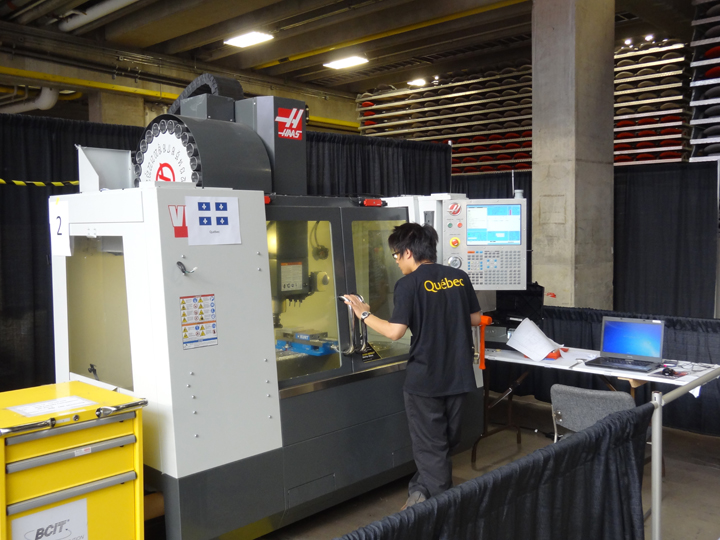
A competitor from Quebec works on a CNC machine at the Skills Canada competition in Vancouver.
TORonTO — According to a recent WorkMonitor study by Randstad, 91 per cent of Canadian workers hold the employer responsible for ensuring the skills of employees correspond with job requirements.
Canadas skills gap was a major element of the last Federal budget, with the launch of programs such as the Canada Job Grant that share the cost of training and upgrading workforce skills with employers.
However, ever since the announcement of the job grant, questions over who is responsible for the costs have begun to emerge.
This may in part be related to the fact that the study also revealed that more than eight in ten Canadian workers feel that the demands on employees are higher than five years ago, said Tom Turpin, President, Randstad Canada.
This has significant implications for Canadas skills shortage, as employed Canadians would be less likely to pursue advanced training on their own.
Canadians already have the highest rate of tertiary college education in the world, says Turpin, citing a recent OECD report evaluating global education.
After years in school, for many there is an expectation that they should be able to get a good job and a strong career. Thats simply an unrealistic impression in many professions.
RELATED: Federal jobs training fund doomed unless Ottawa makes changes: premiers
While Canadians workers are among the most likely to expect their employers to ensure their skills and competences are maintained, they are also amongst the least likely in the world to believe that formal education will become more important in their position, with only 57 per cent agreeing.
Education and training is a serious investment for either a company or an individual. It isnt an easy thing for a job seeker or worker to do on their own, but many professions require it, says Turpin, speaking about retraining requirements for technologies professions, or further advancement required for financial designations like a CPA.
Canadians who are looking for opportunities for training within their workplace, or through their employer, need to start that discussion today.
Implementation of programs like the Canada Job Grant can take time, and the Job Grant program announced earlier this year wont be instituted fully instituted until 2017. However, the advantages of training and promoting from within are very real.
When you train someone and bring them up through the ranks it can be beneficial to your employer brand. It can also be a very beneficial cost savings, removing the need to engage in a more complex hiring process, or train new employees on your internal processes, said Turpin.
To ensure they are bridging the skills gap accordingly, employers need to evaluate what processes or strategies will help them meet their long term hiring and skills management goals. At the same time, Canadian job seekers and workers need to plan for ongoing skills development to both ensure they are prepared to meet the requirements of future job opportunities, as well as to advance within the companies they currently work for.
www.randstad.ca




